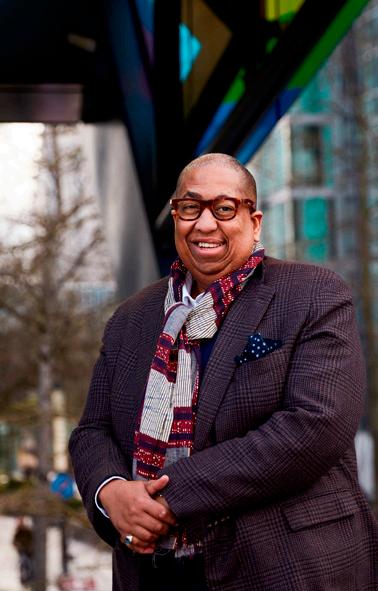
1 minute read
COLUMN
There’s a question that has been bothering me lately. What does it mean for the descendant of an enslaved person and a slave owner to articulate the hope and future of Amsterdam and the Netherlands? On 19 December 2022, Prime Minister Rutte formally apologized on behalf of the Dutch government for the country’s legacy of slavery. The words and the emotions he expressed struck a deep chord. The whole thing was supremely balanced and both the timing of these words and their intensity made an impact.
Earlier this year, on 8 January, my colleagues and I set off for an exploratory trip – a work trip – to the Kingdom’s six Caribbean islands and Suriname. Among the trip’s objectives was to inform the islands and Suriname about and engage them in plans for the development of a Dutch national slavery museum. We also wanted to hear what local communities have to say and what they want us to take on board in the museum’s development phase.
Advertisement
What we hadn’t counted on when planning this trip to Curaçao, Aruba, Bonaire, Sint Maarten, Sint Eustatius, Saba and Suriname were the fierce emotions this subject would bring to the surface. That there are traumas still needing to be processed.
The processing of these traumas has hardly been broached yet, and neither have the different psychological facets. Those raw emotions laid bare each time plasters are ripped from wounds have to be handled with care.
The realization that there is unfinished business was a wakeup call for me and my colleagues. And yet, cutting across all the experiences and painful stories, there is also hope. Hope, because there is a younger generation that is obviously looking to the future and has explicitly asked for our help in education, in professional advancement of the museum sector, in entrepreneurship and for political and administrative development.
This younger generation is well aware that they have to cut through the pain in order to build up a new, shared future. For all the opportunities presented by Amsterdam’s metropolitan development and the construction of a national slavery museum, there is also a challenge for us, which is to include all of the islands in these developments. Even Zuidas has a part to play.
I feel blessed to be part of the team charged with formulating the foundational plans for an iconic building of Healing and Hope together. It is up to us to work with the communities both here and out there to create a building that will truly help shape a connective society.

John Leerdam social trailblazer
John Leerdam is a Dutch film and theater director and former politician. He was a member of the parlement for the Partij van de Arbeid (PvdA) from 2003 to 2012.










